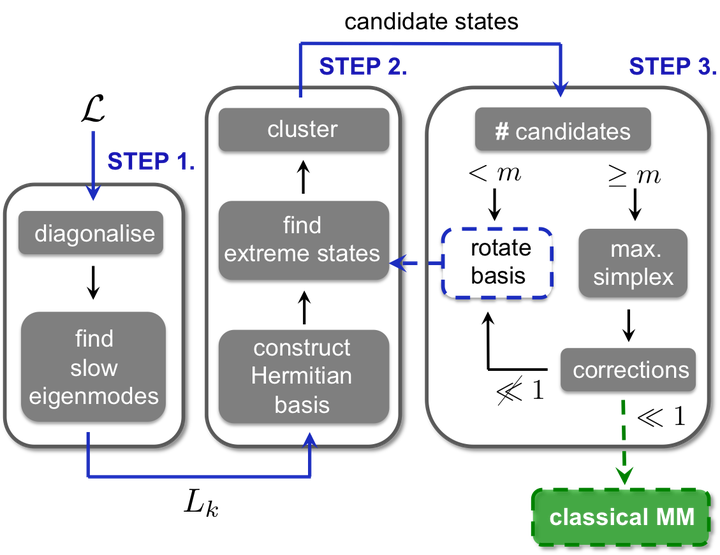 A general algorithm for construction classical metastable manifolds.
A general algorithm for construction classical metastable manifolds.Abstract
We present a general theory of classical metastability in open quantum systems. Metastability is a consequence of a large separation in timescales in the dynamics, leading to the existence of a regime when states of the system appear stationary, before eventual relaxation towards a true stationary state at much larger times. In this work, we focus on the emergence of classical metastability, i.e., when metastable states of an open quantum system with separation of timescales can be approximated as probabilistic mixtures of a finite number of states. We find that a number of classical features follow from this approximation, for both the manifold of metastable states and long-time dynamics between them. Namely, those states are approximately disjoint and thus play the role of metastable phases, and the relaxation towards the stationary state is approximated by a classical stochastic dynamics between them. Importantly, the classical dynamics is observed not only on average, but also at the level of individual quantum trajectories: we show that time coarse-grained continuous measurement records can be viewed as noisy classical trajectories, while their statistics can be approximated by that of the classical dynamics. Among others, this explains how first-order dynamical phase transitions arise from metastability. Finally, in order to verify the presence of classical metastability in a given open quantum system, we develop an efficient numerical approach that delivers the set of metastable phases together with the effective classical dynamics. Since the proximity to a first-order dissipative phase transition manifests as metastability, the theory and tools introduced in this work can be used to investigate such transitions - which occur in the large size limit - through the metastable behavior of many-body systems of moderate sizes accessible to numerics.